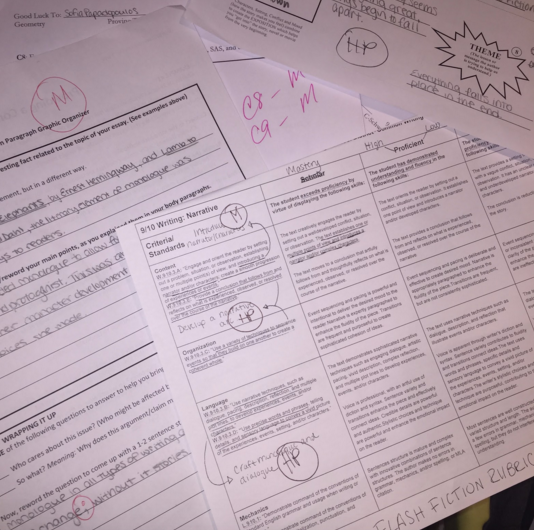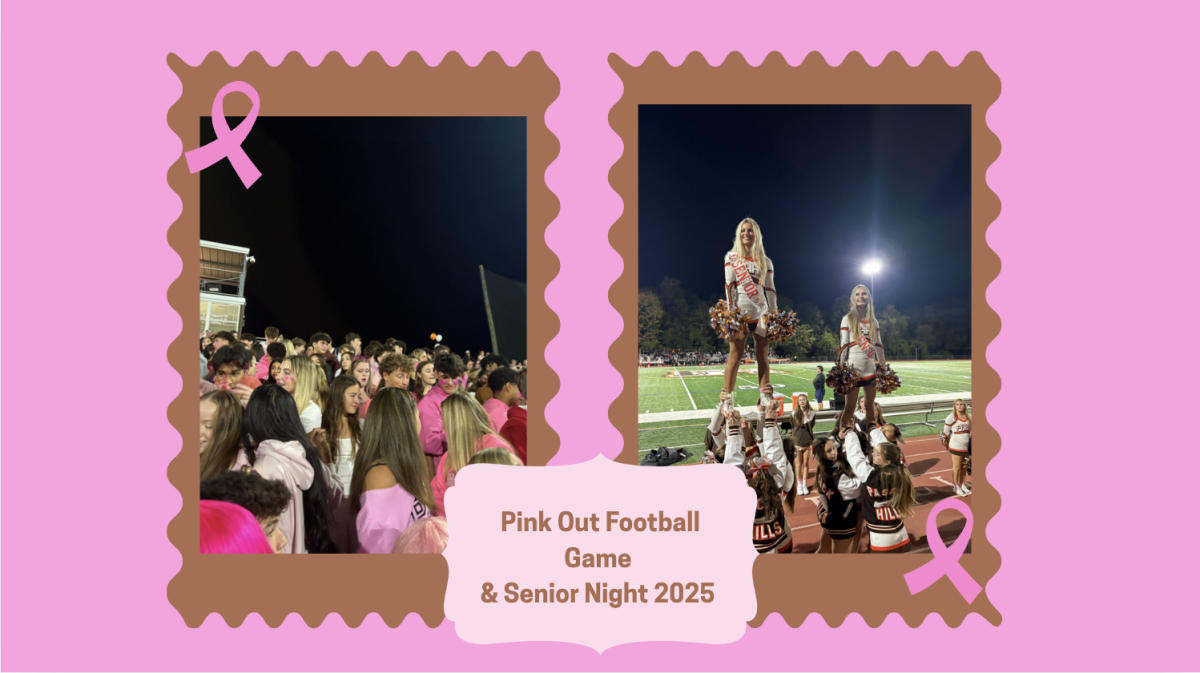Hills’ Opinion on Standards-Based Grading
Editor’s Note: The following is an opinion article. The opinions presented are the writer’s own and are not representative of the Trailblazer newspaper staff or Pascack Hills High School.

When students receive the grades no numbers appear, just their level of proficiency on a skill.
This year some students were introduced to a new type of grading: standards-based grading. This new pilot grades students on a scale for each standard taught within a class.
There is not one style of grading for this, but some examples include the NP (not proficient) to M (mastery) scale, the zero to four scale, and I (incomplete) or M (mastery). This grading is not used in all classes, as it is a new pilot being used within the district.
In a Google Form sent to the entire student body on Feb. 3, 61.9 percent of the 42 students who answered said that they enjoy the grading pilot in their classes, and 53.2 percent said that they would be happy to see this in all classrooms throughout their time at Hills.
Dr. Barry Bachenheimer, Director of Curriculum, Instruction, and Assessment, said, “We are looking at this idea with a small percentage of teachers. A lot of our students see the whole, sole purpose of school is to get a good grade, but not necessarily the learning that comes with that grade. So, what can we, as educators do in classes to help students be a little more aware of the learning as the target, and the grade is the feedback for that learning? This is where the pilot of Standards Based Grading (SBG) comes in. The main idea of this system is to use standard that [students] need to show competency or mastery in. [They] can get to that standard at different arrival times during the year through review and retakes as opposed to a traditional system where [students] are only given one shot on an assessment, they get a “C” or lower, and still have never met that standard or truly have understanding of that topic or skill for the rest of their time at school.”
Junior Olivia Uribe, who has this grading in Physics, said, “I believe that Standards-Based Grading does not prepare you for the future and for college. High school is meant to get us ready for our future and I believe that this grading system most definitely does not prepare you for the future. I feel that it doesn’t prepare you for the future because in college they just grade you, there is not a 1, 2, 3, 4. In college they are grading you like from 0-100, but they don’t care if you’re learning it or not. If you are not learning it and getting good grades it’s on you.”
Freshman Hallie Wikfors, who is in favor of the grading and whose Honors Geometry teacher uses this grading, said, “I really like this grading system because, for example, if you get an I on a math quiz, it just shows you that you need more work on that topic and then you can retake the quiz to show that you understand it better.”
Charleen Schwartzman, who uses both the I or M and 0-4 grading scales in her CP Geometry and Calculus classes, said, “Grades have not been reflecting kids legitimate understanding of the content. [This] allows kids to advocate for themselves and take ownership for their learning instead of putting it on the laps of teachers. It’s all on them to do it and I think it is teaching kids about making the effort to be successful.”
On the other hand, freshman Kiera Bellmer said, “I feel that for some subjects it is beneficial to a student, but for others it is not. In geometry classes, which I don’t take, I know that there are a lot of students struggling due to the pass (M) or fail (I) nature of grading, even though retakes are available. While, in English most students are benefitting for having a scale (I, NP, LP, HP, M) to be graded from and to be able to retake to move up from.”
At Hills, good grades are something most students strive for, but that can get in the way of mastering a topic. Senior Jillian Michales said, “I feel it makes students focus more on learning the material and stress less about their grades.”
Physics teacher, David Frangiosa said, “After having conversations with students, it all came back to one thing: grades, grades, grades. Students weren’t taking the feedback that I gave them saying, ‘This is what you need to improve to get to the grade that you want.’ So, I decided to remove the grade and just explicitly say, ‘These are the skills that you need to know and we are going to assess you on how well you perform in each one of those skills.’”
Junior Michael Mironidis said, “It seems to work out for me, personally. For Physics, it’s a hard subject, and Standards-Based Grading seems to help me get better grades.”
Not all students have seen this pilot, and they too have an opinion on it. Sophomore Hanna Kimball said, “Even though I don’t have Standards-Based Grading, I don’t like the idea of it. I think it is much simpler for students to know and see exactly what they get. I like just the usual number grading system because it is simple and I am able to know exactly how I am doing in a class.”

Sofia Papadopoulos is currently a senior at Hills and the Editor-in-Chief alongside Eric Traub. Before becoming Editor in Chief, she spent her years at the Trailblazer as School News Editor and College Corner Editor while writing away for any section she could. She is very excited to continue writing articles and training underclassmen in her final year with her favorite club (and publication, of course)!











































